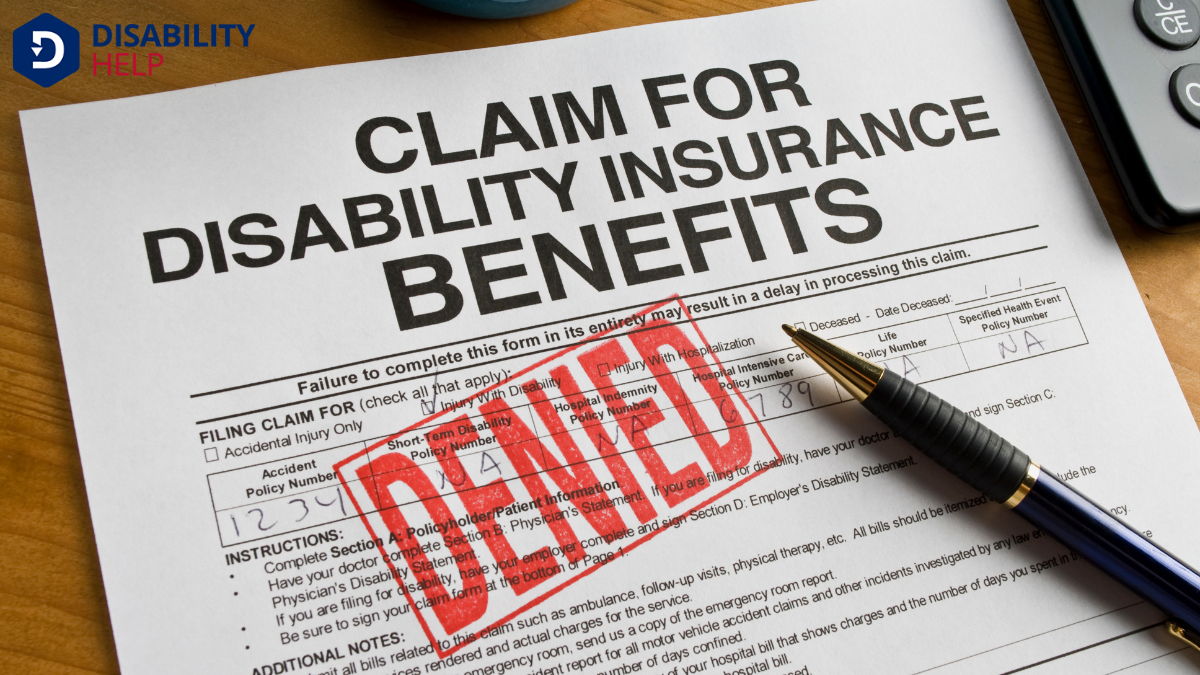When we think about how long someone can be on disability, it’s important to take into account a few key factors. The type of program, individual circumstances, and medical conditions all play a role. Social Security Disability Insurance (SSDI)A U.S. government program that provides financial assistance to individuals who are unable to work d... and Supplemental Security Income (SSI) each have their own criteria and nuances. We need to understand how regular medical reviews and income fluctuations might affect benefits. What happens if someone starts earning above a certain amount? Let's explore this further.
Key Takeaways
- Disability benefitsFinancial assistance provided to individuals who are unable to work due to a disability, such as Soc... can continue as long as the individual's condition meets the program's eligibility criteria.
- Regular medical reviews assess the disability status and can affect the continuation of benefits.
- Benefit duration depends on the individual's age, medical condition severity, and compliance with treatment plans.
- Exceeding Substantial Gainful Activity income levels may lead to a risk of losing disability benefits.
- The Trial Work Period allows testing work ability without immediate loss of benefits, impacting benefit duration.
Understanding SSDI and SSI Programs
Although traversing the complexities of disability benefits can be intimidating, understanding the differences between the Social Security Disability InsuranceA form of insurance that provides income to individuals who are unable to work due to a disability. (SSDI) and Supplemental Security Income (SSI) programs is essential.
SSDI and SSI serve distinct purposes, and recognizing these can help us navigate the right path. SSDI is designed for individuals who've worked and paid into Social Security, offering support based on their earnings record. Meanwhile, SSI is need-based, assisting those with limited income and resources, regardless of work history.
We must consider our circumstances when determining which program aligns with our needs. Both programs provide essential support, but the criteria and benefits differ.
Eligibility Criteria for Disability Benefits

Understanding the distinctions between SSDI and SSI programs lays the foundation for exploring the eligibility criteria for disability benefits.
When we consider SSDI, we focus on our work history and contributions to Social Security. We need enough work credits, typically acquired through consistent employment. On the other hand, SSI eligibility is determined by financial need, not work history. Here, we assess our income and resources, ensuring they fall below specific limits.
For both programs, the core requirement is a medically determinable impairmentA loss or abnormality of a body structure or function, whether physical, mental, or sensory, often a... expected to last at least a year or result in death. Our condition must greatly limit daily activities or work capabilities.
Gathering medical documentation and evidence is essential. We're encouraged to keep records organized and accurate for a smooth application process.
The Role of Medical Reviews in Determining Benefit Duration
When we're approved for disability benefits, it’s important to know that regular medical reviews play a significant role in determining how long we can continue receiving them.
These reviews, known as Continuing Disability Reviews (CDRs), assess whether our condition still meets the criteria for disability. The Social Security Administration (SSA) schedules these reviews based on the likelihood of medical improvement.
For example, if improvement is expected, a review might occur every six to 18 months. If not expected, reviews might be every three to seven years.
During a CDR, the SSA examines updated medical records and may request additional information or tests. If they find significant improvement, our benefits might be reduced or terminated.
Understanding this process helps us stay informed and prepared.
Factors Affecting the Continuation of Benefits
Besides the medical reviews, several other factors influence how long we can receive disability benefits. Our age and the severity of our condition play significant roles. Younger individuals might face more frequent reviews, as there's a greater chance their condition could improve.
The stability of our condition is also essential. If our medical condition is unlikely to improve, we may continue receiving benefits for an extended period.
We should also consider our compliance with treatment plans. Following prescribed treatments can demonstrate our commitment to recovery and support our case.
Additionally, any changes in our living situation or financial resources might affect eligibility. Staying informed and proactive guarantees we maintain our benefits for as long as necessary, providing vital support during challenging times.
How Employment and Earnings Impact Disability Status

Although maneuvering the intersection of employment and disability benefits can be complex, it’s crucial to understand how our earnings might affect our status.
When we earn income while receiving disability benefits, it can influence our eligibility. The Social Security Administration (SSA) has guidelines called Substantial Gainful Activity (SGA) that determine how much income we can earn without risking our benefits.
If our earnings exceed the SGA level, we might be seen as capable of substantial work, potentially affecting our disability status.
However, SSA offers incentives like the Trial Work Period, allowing us to test our ability to work without losing benefits immediately.
Understanding these guidelines helps us make informed decisions about balancing work and maintaining our disability benefits.
Changes in Medical Condition and Its Effect on Benefits
When our medical condition improves, it can affect our disability benefits, prompting a reassessment of our status.
We'll need to provide updated medical evidence to demonstrate our current health situation.
Keeping track of these changes guarantees our benefits accurately reflect our needs.
Medical Condition Improvement Impact
An improvement in your medical condition can greatly impact your disability benefits. When our health gets better, it's possible that our eligibility for benefits might change.
The Social Security Administration (SSA) regularly reviews cases to assess any changes. If your condition improves considerably, it might mean you're no longer considered disabled under their criteria. This could lead to a reduction or even termination of benefits.
We all want clarity on what happens next, and it's important to stay informed. If our health improves, we should communicate with the SSA promptly.
They provide guidelines on how to report changes and what documentation is needed. Understanding this process helps guarantee we’re prepared if our benefits change due to medical improvements.
Reassessment of Disability Status
As we navigate the process of disability reassessment, it’s important to understand how changes in our medical condition can affect our benefits.
When our health improves or declines, it can lead to a reassessment of our eligibility. Let's explore how these changes might impact us:
- Improvement in health: We might find our benefits reduced or terminated.
- Worsening condition: This could result in continued or increased benefits.
- Stable condition: Our benefits might remain unchanged.
- Periodic reviews: These guarantee our status aligns with current medical conditions.
- Communication: Staying in touch with our healthcare providers and the disability office helps prevent surprises.
Understanding these factors empowers us to anticipate changes and prepare accordingly, allowing us to maintain the support we need.
Updated Medical Evidence Requirements
Although our medical conditions might change over time, it’s vital to understand how these changes impact the type of medical evidence needed to maintain or adjust our disability benefits.
When our health improves, the evidence must show a continued need for assistance or reflect our current state accurately. Alternatively, if our condition worsens, updated medical records can support an increase in benefits.
We must proactively provide accurate, detailed, and timely medical documentation to the appropriate authorities. This documentation includes doctors’ notes, test results, and treatment plans that clearly outline our condition's impact on our ability to work.
Understanding these requirements helps us guarantee our benefits align with our current needs and prevents any disruption in receiving the necessary support.
The Appeals Process for Terminated Benefits
Let's explore what happens if our disability benefits are terminated and how we can challenge this decision.
First, it's important to quickly file an appeal to guarantee our case is reconsidered.
We'll also need to gather and submit the necessary documentation to support our appeal effectively.
Filing an Appeal
When facing the termination of disability benefits, understanding the appeals process is essential.
We need to know our rights and the steps to take when benefits are unfairly stopped. Filing an appeal requires careful attention to detail and prompt action. Here’s a quick guide to help us navigate this process:
- Act swiftly: We must file the appeal within the specified deadline to avoid losing our rights.
- Gather evidence: Collect all medical records and relevant documents that support our case.
- Understand the process: Familiarize ourselves with each step involved in the appeals process.
- Seek support: Consider reaching out to a legal representative specializing in disability claims.
- Stay informed: Keep track of all communications and updates related to our appeal.
This approach can help us effectively challenge the termination.
Understanding Required Documentation
Having a solid understanding of the required documentation is key to successfully appealing the termination of disability benefits. We need to gather every piece of evidence that supports our claim. This includes medical records, doctors' notes, and any correspondence that proves our ongoing inability to work.
It's essential that we organize these documents logically and guarantee they're up-to-date. When we submit our appeal, clarity and completeness of the documentation will strengthen our case.
Let’s remember to check the specific requirements of the appeals process, as they can vary. If we need help, consulting a disability advocate or attorney might be wise. They can guide us through the nuances, making sure we’ve covered all necessary bases for our appeal to be successful.
Conclusion
In summary, we must stay informed about the factors influencing our disability benefits. By understanding SSDI and SSI programs and how medical reviews and income affect our eligibility, we can better navigate the system. Let’s make certain we’re aware of how changes in our medical condition or employment status might impact our benefits. If our benefits are ever terminated, knowing the appeals process will empower us to advocate for ourselves and maintain the support we need.






